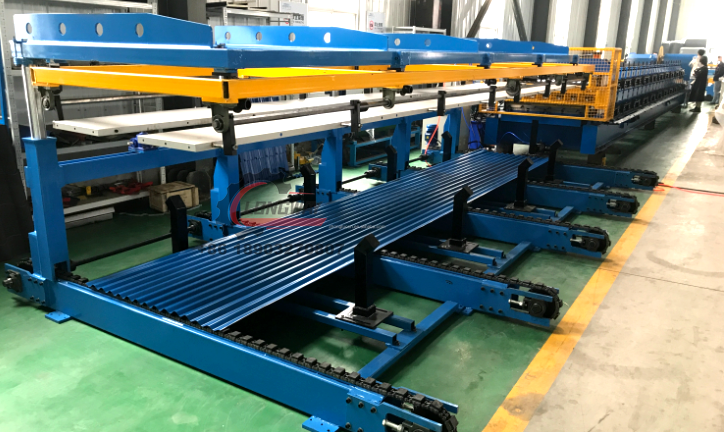Innovative Solutions for Custom Metal Roll Forming Techniques and Applications
Custom Metal Roll Forming Revolutionizing Manufacturing Processes
In the realm of manufacturing, precision and efficiency are paramount. One of the most innovative processes that have emerged to meet these demands is custom metal roll forming. This method not only enhances production capabilities but also allows for the creation of complex shapes and designs that are integral to various industries, including automotive, construction, and telecommunications.
Understanding Roll Forming
Roll forming is a continuous bending operation in which a long strip of sheet metal, usually coiled, is passed through a series of contoured rolls to gradually shape it into a desired profile. This process is distinct from traditional metal forming techniques, offering higher production rates and less material waste. Customization in roll forming involves tailoring the design, dimensions, and specifications of the finished product to meet specific client needs and applications.
One of the key advantages of custom metal roll forming is its ability to produce long lengths of metal components with consistent cross-sections. This is particularly beneficial for industries that require specific metal shapes to be fabricated quickly and efficiently, such as structural beams for buildings, automotive frames, and even custom signage solutions.
Benefits of Custom Metal Roll Forming
1. Cost-Effectiveness Custom roll forming is known for its cost efficiency, especially in high-volume production runs. The continuous process minimizes waste compared to other metal fabrication techniques, where the cut-offs can lead to significant material loss.
2. Versatility The roll forming process can accommodate various materials, including steel, aluminum, and stainless steel, allowing manufacturers to choose the best material for their specific application. Additionally, it can produce components with intricate shapes and sizes, making it suitable for a wide range of industries.
3. Consistency and Precision One of the hallmarks of roll forming is its ability to produce components with tight tolerances. Automated systems ensure that each piece meets the required specifications, leading to higher quality products with consistent performance.
custom metal roll forming

4. Reduced Lead Times With advanced roll forming technology, the time from design to finished product is significantly reduced. This is essential for industries like construction and automotive manufacturing, where timelines are often critical.
5. Integration with Other Processes Custom roll forming can easily integrate with other manufacturing processes, such as welding and punching. This flexibility allows for the creation of complex assemblies in a streamlined manner, further enhancing production efficiency.
Applications Across Industries
The versatility of custom metal roll forming means its applications are practically limitless. In the construction industry, custom roll-formed components are often used for roof and wall panels, gutters, and structural supports. The automotive industry relies on roll-formed parts for chassis and frame components, where strength and lightweight materials are crucial for performance and fuel efficiency.
Telecommunications companies utilize roll forming to create sturdy towers and supports that can withstand various environmental factors, while the HVAC industry benefits from roll-formed ducts and vents that provide optimal airflow and energy efficiency. The custom nature of this process allows manufacturers to develop tailored solutions that meet the exact demands of each sector.
Conclusion
Custom metal roll forming is a game-changing process that enhances the manufacturing landscape by offering precision, versatility, and efficiency. As industries continue to evolve and demand more specialized components, roll forming stands out as a reliable solution that not only meets but exceeds these expectations. By investing in this technology, manufacturers can enhance their productivity, reduce waste, and create high-quality products that drive innovation across various fields.
In summary, custom metal roll forming is more than just a manufacturing technique; it is a critical component in the advancement of industrial design and production. Embracing this method will undoubtedly play a significant role in the future of manufacturing, enabling the development of sophisticated and sustainable solutions that fuel progress in a rapidly changing world.
-
Roof Panel Machines: Buying Guide, Types, and PricingNewsJul.04, 2025
-
Purlin Machines: Types, Features, and Pricing GuideNewsJul.04, 2025
-
Metal Embossing Machines: Types, Applications, and Buying GuideNewsJul.04, 2025
-
Gutter Machines: Features, Types, and Cost BreakdownNewsJul.04, 2025
-
Cut to Length Line: Overview, Equipment, and Buying GuideNewsJul.04, 2025
-
Auto Stacker: Features, Applications, and Cost BreakdownNewsJul.04, 2025
-
Top Drywall Profile Machine Models for SaleNewsJun.05, 2025








